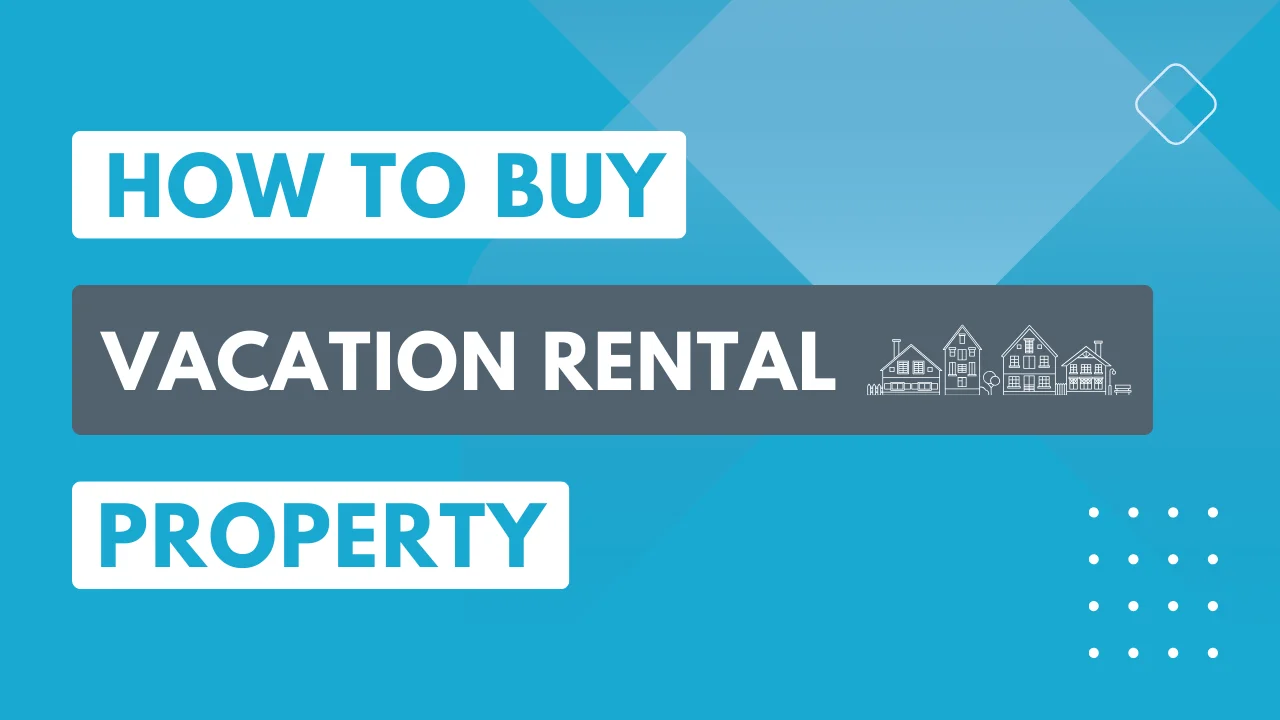Investing in vacation rentals is one of the most lucrative forms of real estate investing. The rental income generated is often much higher than what would be possible for other forms of investment property, and there are often tax advantages.
However, it’s important to understand the obligations and downsides of vacation rental property before choosing to invest. This article provides a guide to buying a vacation rental property and discusses some of its pros and cons.
Once you’ve decided that a vacation rental property is a wise investment for you, it’s time to examine the financial aspects, including profitability and expenditures.
Calculate Monthly Expenses
Beyond the down payment and closing costs, the most significant cost of financing real estate investments are the monthly mortgage payments, but there are other costs associated with short term vacation rentals.
Expenses for a vacation rental include property taxes, property management fees, HOA fees, and property insurance premiums. You’ll also need to cover utilities for the vacation home, like water, electricity, sewer, and garbage disposal.
On the business side, marketing is a significant component of managing a vacation property, which can include buying ads, covering costs associated with hosting your listing on rental sites, and developing marketing material like pictures and copy.
You’ll need to buy furnishings and keep them in good repair, and many guests may expect you to provide toiletries as well. Many investors choose to pay for a cleaning company to tend to the property after every visit, even when they request that guests clean up after themselves.
Lastly, consider paying a certified public accountant to assist with your taxes so that you’re not burdened with tax liens due to non-payment.
Estimate Monthly Income
To ascertain your potential monthly income, you must identify a fair-market nightly rental rate. This should be based on factors such as what the competition is charging, how many visitors you can expect per month, and the costs to operate your vacation rental.
Research the average occupancy of your competitors with similarly sized properties, then use this as a baseline to ascertain how many bookings you can expect per month. Be realistic with this rather than assuming full occupancy.
Remember that your bookings can also be highly seasonal, so you may charge different rates at certain times of the year. Take a full-year perspective on your vacation rental so that you can still cover your expenses even when business is slow. Some of your expenses may drop during quieter seasons, but it is better to assume your costs will remain fixed and build this into your rate.
Once you have identified a suitable nightly rental rate, subtract your operational expenses from your expected revenue in order to determine how much your monthly income will be. A good rule of thumb is that your monthly income should be 1.2 times your operational expenses, which is the sum of all the above factors.
Secure Financing and Close on the Vacation Property Purchase
You have a variety of options for financing to buy a vacation home. Vacation rental loans are generally separated into two avenues: traditional financing, such as conventional mortgages, and asset-based financing, like Debt Service Coverage Ratio (DSCR) loans.
Conventional loans are a common option for those new to the business, but they require extensive paperwork and careful investigation into your personal finances. They work much like a traditional mortgage; you will submit tax returns, pay stubs, and proof of your debt-to-income ratio.
These will be used to determine your possible mortgage interest rates and how much you can borrow. After that, you will sign the paperwork and provide a down payment, after which the lender will finance the vacation rental.
DSCR loans have calculate rates based on potential monthly income rather than your personal finances. With this loan, you submit documentation on the profitability of the vacation home, which includes research into the market rates, the previous rental history of the property, and your expected monthly expenses, such as your mortgage, homeowners insurance fees, taxes, and association dues.
This is then used to calculate the Debt Service Coverage Ratio, which identifies how much profit you make (you typically want to have a ratio of 1.25 or more). You’ll also need to have the property assessed to ensure that it is worth the expenditure.
If your ratio is adequate and you’re approved, the lender will decide a mortgage rate and ask for at least 20% down, though some lenders ask for more. You’ll then pay the requested costs, sign the paperwork transferring the title to you, and begin marketing your vacation home.
The Bottom Line: Should You Buy a Vacation Home?
Owning vacation rental property is highly lucrative, but it also entails careful market research and an understanding of the many financing costs. However, it’s an excellent investment, particularly as there are many advantageous lending options available. If you’d like to learn more, reach out to one of our representatives and get started on your investment journey.






